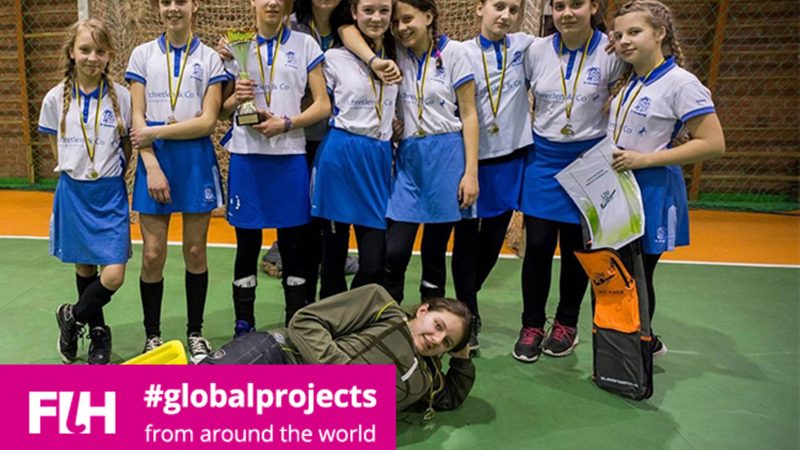
Hockey today is a globalised, commercialised sport, which is accountable to its many stakeholders. At the same time, it is a sport that is played with passion, emotion and high levels of athleticism and skill. To be an effective National Association, everyone involved must buy into both strands of the game – the commercial side and the sports side. It is a message that the Chief Officer and her team at the Lithuanian Hockey Federation (LHF) is driving home.
Hockey was first played in Lithuania in 1954 but it only really hit the general population’s radar in 1977. From that year onwards, there has been a slow but gradual growth in interest with hockey moving up the rankings to become the fifth most popular sport in the country. Now the LHF wants to push on and raise the profile and participation rates to new levels.
For hockey to really develop in the country there must be a much more professional attitude at all levels of the game, says Monika Ivanauskaitė, who is Chief Officer of LHF.
Ivanauskaitė has highlighted a number of areas where a more professional approach is necessary, but three stand out. The organisation of the national federation has been restructured so that now it is not simply people who love hockey who are running the sport. Committee and Board Members are also recruited for their business acumen and strategic ability. The LHF is setting out its stall as a business model as well as a sporting body.
The second area that the LHF is currently addressing is the knowledge and experience of volunteers. As Ivanauskaitė points out: “Professional and commercial sports organisations must meet customer and stakeholder demands.” But, she says this is an area that still needs much work, “We don’t have the people with the competence we need.”
Taking a scientific approach to training is the third area and it is here that Ivanauskaitė herself has been busy. The thesis for her degree looked in depth at the preparation and performance of the national under 21 team over the course of a season, culminating in their performance at the EuroHockey Youth Championships in 2015. The aim of her thesis was to examine how current practices could be tweaked to help players to reach a level where they could compete at junior and adult international level. “The young are our future,” says Ivanauskaitė, “we need to put more effort into analysing them.”
Underpinning these three strands of thought is the belief that hockey must be a sport for all. The LHF has participated in a Sports Fair every year since 2011, where hundreds of children are introduced to a range of sports. Hockey’s contribution to the Sports Fair takes place at Hockey Club Vilnius, one of the very active hockey clubs in Lithuania.
The LHF is also working hard to spread the game geographically. Every two years a new area is targeted, with the first of these, Taurus-Veršvai HC in Kaunas now running a number of teams for all ages. Kaunas was followed by Nansen HC in Duagai and the latest area to be introduced to hockey is Kaltinenai, a small village in North Lithuania.
For Ivanauskaitė, the key to success lies in people. “We are always looking to attract the right coach, manager or CEO to transform the sport from bottom of the pile to a league or world champion.”
Such an approach is very much in-line with International Hockey Federation's 10-year Hockey Revolution strategy which aims to make hockey a global game that inspires the next generation. For more information about the Hockey Revolution, click here.
For more information about hockey in Lithuania, visit the LHF website.
To find out more about hockey across Europe, visit EuroHockey's website.
#GlobalProjects






















